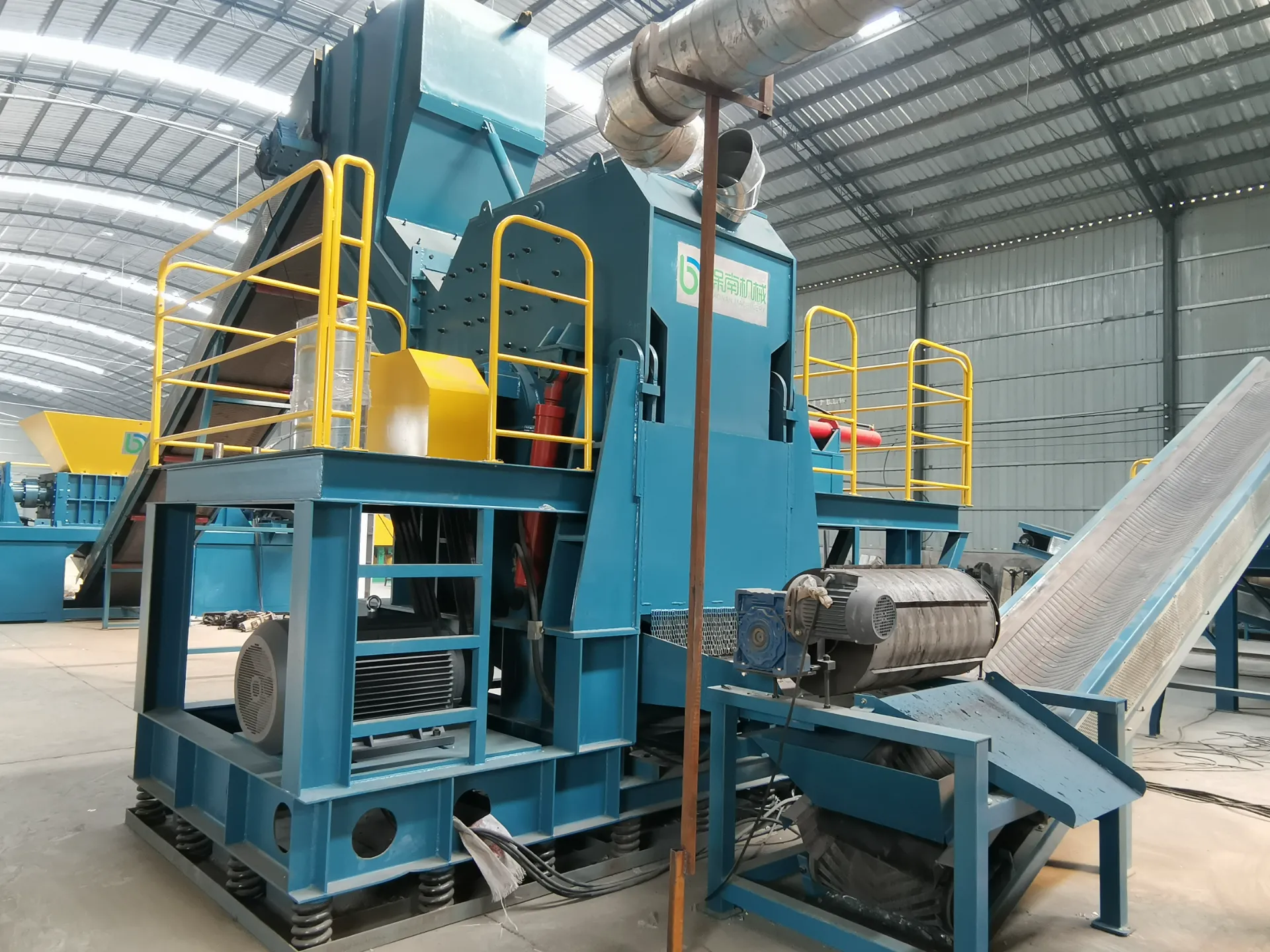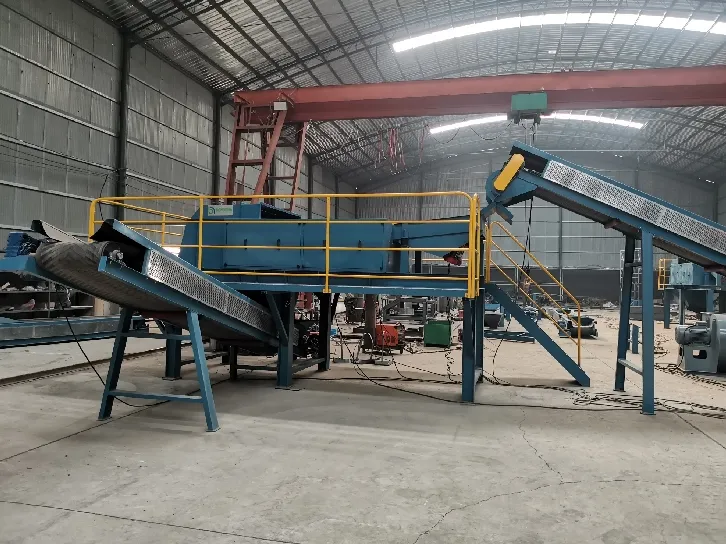Electronic scrap shredders have become an essential tool in the recycling and waste management industries. These powerful machines play a critical role in breaking down complex electronic devices into smaller, manageable pieces, enabling efficient material recovery and recycling. This article delves into a deep exploration of electronic scrap shredders, illustrating their importance and the vital impact they have on sustainable practices.

Electronic waste, primarily consisting of outdated or non-functional electronics, represents one of the fastest-growing waste streams worldwide. As the digital age rapidly advances, the proliferation of gadgets and technological devices has led to an overwhelming influx of electronic waste. Electronic scrap shredders are at the forefront of tackling this growing problem, offering a viable solution to manage and recycle e-waste effectively.
At the core of their functionality, electronic scrap shredders employ a robust mechanical process to dismantle various electronic devices. These machines are designed to handle a diverse range of materials, including metals, plastics, and even hazardous components. By reducing electronics into smaller pieces, shredders facilitate the subsequent sorting and separation processes necessary for efficient recycling. Their ability to homogenize mixed materials makes it easier for facilities to extract valuable metals such as copper, gold, and silver, which can be repurposed for new products.

The technology behind electronic scrap shredders has evolved significantly over the years. Modern shredders incorporate advanced features such as automated controls, variable speed drives, and reinforced cutting mechanisms. These innovations enhance their efficiency, ensuring that they can adapt to different types of electronic scrap with ease. Operators benefit from these improvements by experiencing increased throughput and reduced downtime, which translates to higher productivity and cost-effectiveness.
From an expert perspective, selecting the right electronic scrap shredder is crucial for businesses involved in electronic waste management. Critical considerations include the shredder's capacity, the types of materials it can process, energy efficiency, and ease of maintenance. Manufacturers often provide detailed specifications and offer expert consultations to help businesses choose the most suitable shredder for their specific needs. This expertise not only ensures optimal performance but also minimizes operational risks, thus enhancing the overall sustainability of recycling operations.
electronic scrap shredders
Trustworthiness is a fundamental aspect when discussing the operation of electronic scrap shredders. Leading manufacturers prioritize safety and environmental compliance. Their machines often adhere to rigorous industry standards and are designed with features such as dust suppression systems and noise reduction technologies. These considerations not only protect operators from potential hazards but also reduce the environmental impact of shredding activities. As a result, businesses can assure stakeholders that their recycling processes align with best practices and regulatory requirements.
The environmental implications of using electronic scrap shredders are profound. By enabling the efficient recycling of e-waste, these machines contribute significantly to reducing the volume of waste sent to landfills. Additionally, the recovery of precious metals and other materials reduces the demand for virgin resources, thus conserving natural reserves and reducing the environmental footprint of mining activities. This sustainable approach aligns with global objectives towards a circular economy, where materials are continuously repurposed to minimize waste.
Authoritativeness in the field of electronic scrap shredders is often demonstrated through innovation and industry leadership. Companies that invest in research and development continuously seek ways to enhance the performance and efficiency of their shredders. This commitment to innovation not only solidifies their position as industry leaders but also ensures that they provide customers with cutting-edge solutions that meet the evolving challenges of e-waste management.
Moreover, real-world experience from industry professionals underscores the transformative impact of electronic scrap shredders. Testimonials often highlight improvements in operational efficiency, reduced costs, and the impressive recovery rates of valuable materials. Such firsthand accounts not only provide valuable insights but also build confidence among potential users in the effectiveness of these machines.
In conclusion, electronic scrap shredders are indispensable in the modern landscape of waste management and recycling. Their innovative technology, backed by expert knowledge and a focus on trustworthiness, positions them as a pivotal element in achieving sustainable waste management goals. As industries continue to grapple with the challenges of electronic waste, the role of electronic scrap shredders will undoubtedly remain crucial, paving the way for a cleaner, more sustainable future.


